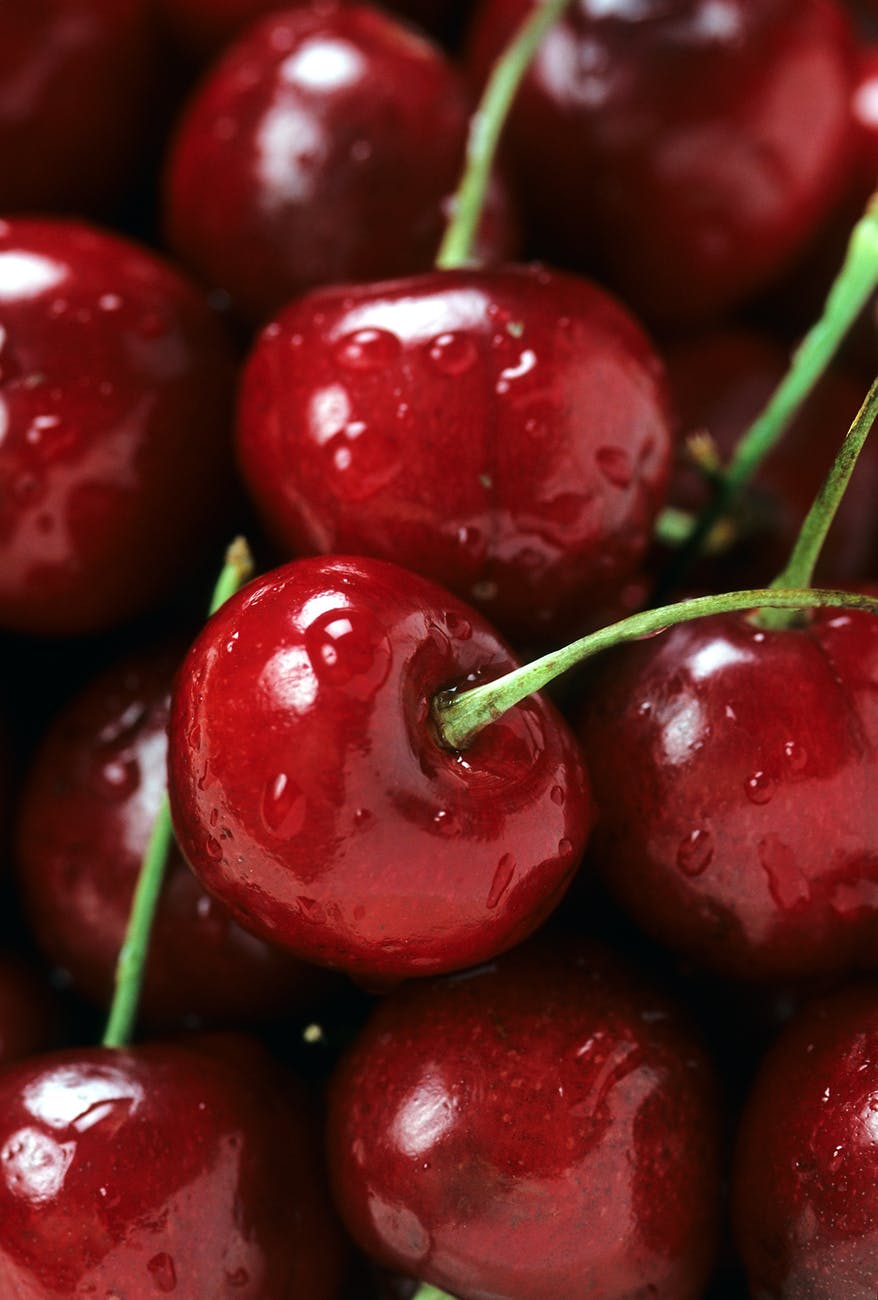According to a Registered Dietitian
Maybe you are tired of feeling hung-over after a night of drinking, or maybe you are trying to live a healthier life. Or perhaps you want to feel relaxed without feeling sloppy or impaired. Whatever the reason, you want a drink that can give you that “carefree feeling” of relaxation, without the unhealthy and unpleasant side effects of alcohol. But are there healthy non-alcoholic drinks that actually help you unwind?
The Answer…studies say, perhaps.
This site contains affiliate links (See full disclosure here.)
Lacy Ngo, MS, RDN is a registered dietitian and owner of Mindfulness in Faith and Food, LLC. Mindfulness in Faith and Food, LLC focuses on how to live your healthiest, happiest, most meaningful life through faith-based mindfulness and evidence-based nutrition.
Ngo is one of the top experts in faith-based mindfulness and nutrition and also the author of several books including, Mindfulness in Faith and Freezer Meals, The Nourishing Meal Builder, and Faith, Mindfulness, & Nutrition. You can also find evidence-based nutrition articles, recipes, convenient healthy snack lists, and faith-based mindfulness techniques on her blog, Mindfulness in Faith and Food.
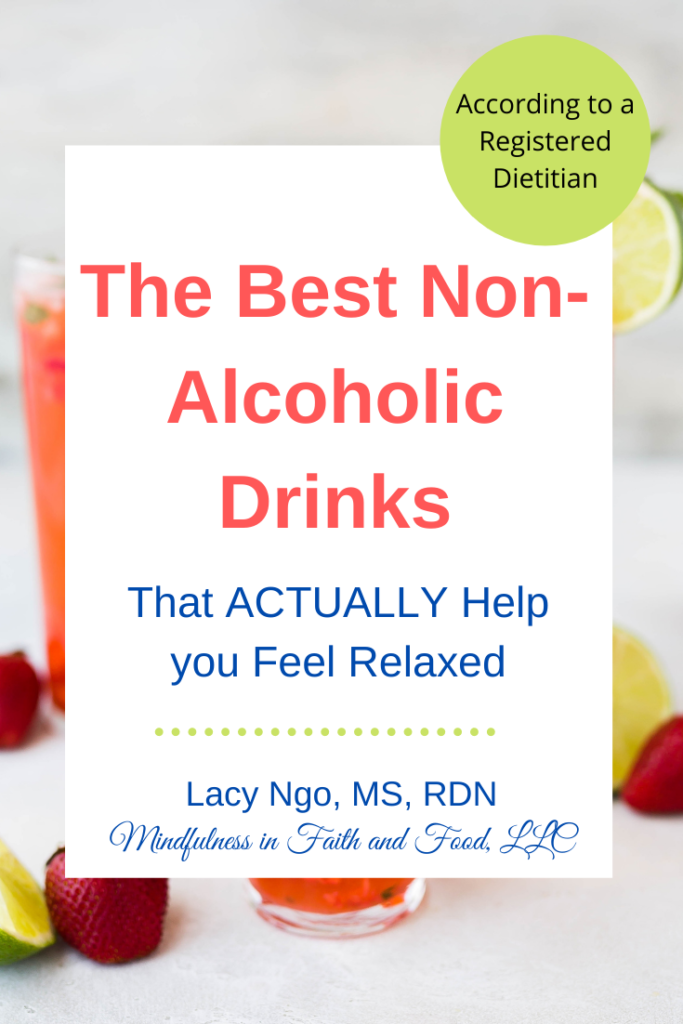
Here are the Top Non-alcohol Drinks That May Help Take the Edge Off:
1. Green Tea
Studies show that diets high in polyphenol antioxidants can be helpful when it comes to mood, and Green tea, specifically, (a good source of polyphenols) has been associated with a decrease in the prevalence of depression. In fact, individuals who drank 4 cups or more per day had a 51% lower prevalence of depression compared to those who drank 1 cup or less per day. Green tea also contains L-theanine. Studies show that the EGCG and L-Theanine may help relax the brain without making you feel drowsy. So Instead of a nightly cocktail to help you unwind, try a nightly cup of green tea.
Popular Pick: Tazo Green Tea
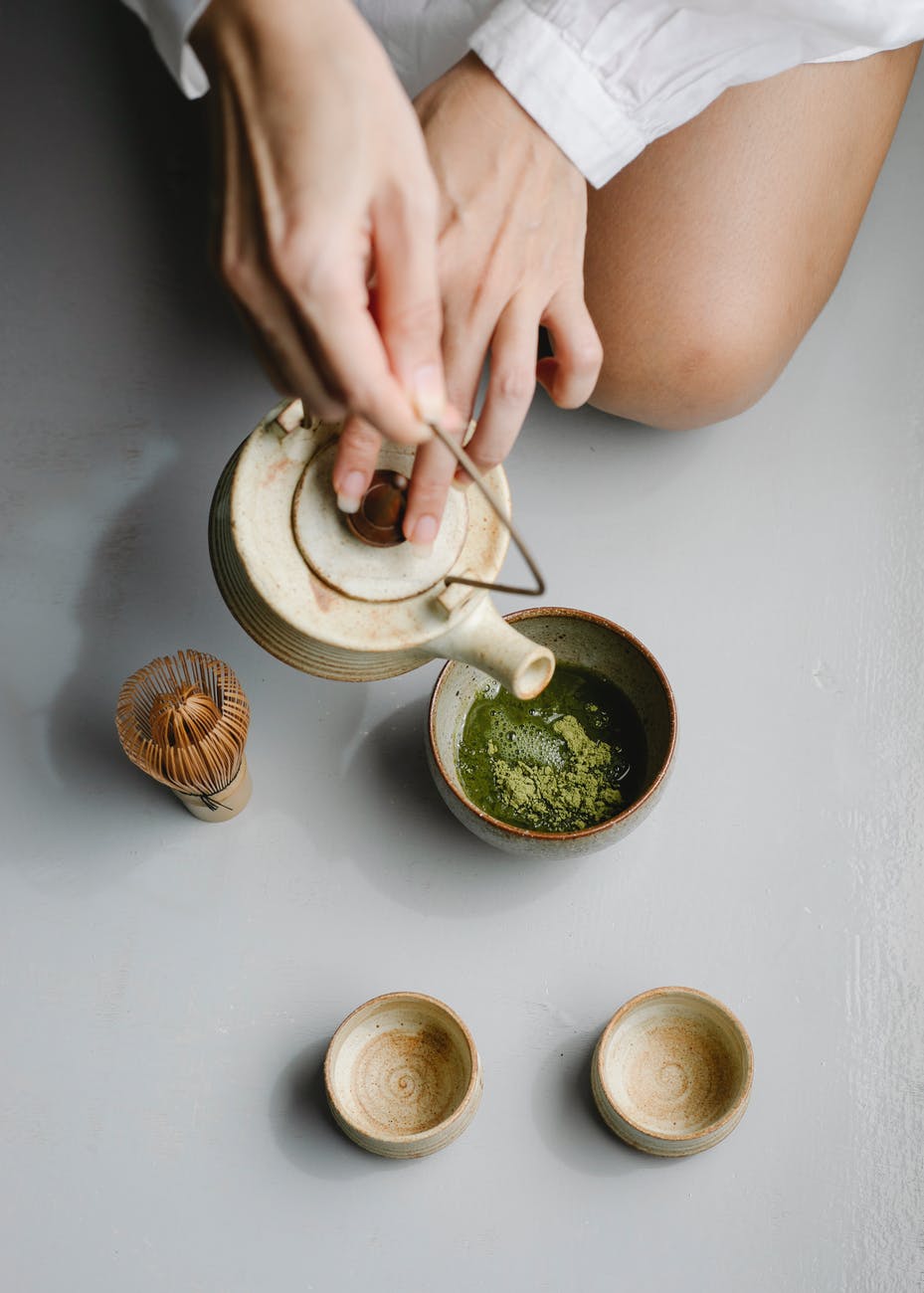
2. Fruit Smoothies
Studies show that a diet rich in antioxidants may help your mood overtime, and one study suggests that consuming antioxidants may improve your mood immediately. In this study, children and young adults were given a flavonoid-rich blueberry drink. Their moods were assessed before and after the drink. The participants reported a more positive mood after the drink. Although these results are interesting, this study had some weaknesses, therefore more research is needed to determine if antioxidants can improve moods this quickly.
3. Non-alcoholic Kombucha
The antioxidants and probiotics in kombucha may play a role in helping you wind down after a long stressful day.
We discussed earlier what the research says about antioxidant and mood, but what does the research say about probiotics?
According to The Yale Journal of Biology and Medicine, poor gut health may have a negative impact on mood and may increase the symptoms of depression and anxiety. Although more studies are needed, probiotics are thought to improve gut health, and in a randomized, double-blinded, placebo-controlled trials, probiotics, especially Lactobacillus and Bifidunactera, significantly reduced symptoms of depression, anxiety, and stress.
Popular Pick: Humm Zero
4. Probiotic-Fortified Antioxidant Drinks
We have established that poor gut health has been linked to poor mood and that antioxidants and probiotics may help balance out the gut. Fortunately you can get both antioxidants and probiotics in fun fortified waters. Karma is one example of a tasty probiotic drink. This probiotic drinks contain antioxidants and several vitamins. Karma also brings a little fun to your drinking experience. To mix the drink, you get to push a little button on the top and watch the flavored probiotic powder pour into the bottle. How fun is that!?!?
Popular Pick: Karma Probiotic
5. Hot Chocolate made with Dark Chocolate
Dark chocolate is not only delicious but also rich in antioxidants and serotonin. According to research, dark chocolate may even act as an antidepressant. Plus, the warmth of hot chocolate has a soothing, calming effect.
Popular Pick: Castle Kitchen Double Dutch Dark Chocolate
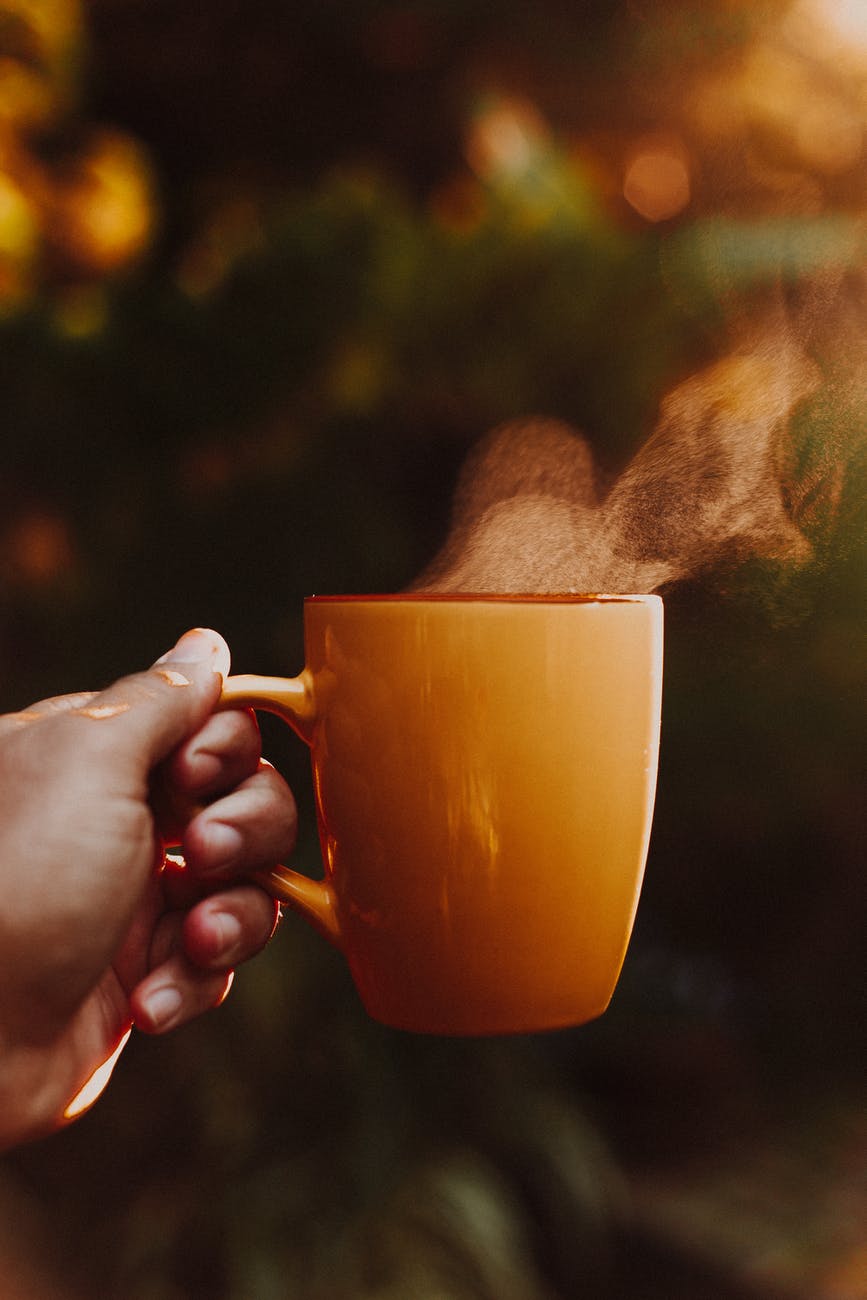
6. CBD Drinks
Unlike THC, CBD is the part of the Hemp plant that is not intoxicating and will not get you “high.” CBD may have anti-anxiety and anti-inflammatory properties, and according to a double-blinded, placebo-controlled human study, CBD may reduce anxiety during stressful situations like public speaking. Also, according to a mice study, CBD also may have antidepressant-like effects. A word of caution, however, some CBD products may have trace amounts of THC, and although this trace amount is not thought to affect you, in rare cases it could still show up on a drug test. CBD is considered a supplement; therefore, you should discuss CBD with your doctor before consuming CBD.
7. Chamomile Tea
Studies have shown that people with general anxiety disorder or depression experienced significantly less symptoms of anxiety after consuming chamomile. Like hot chocolate and green tea, the warmth of the cup in your hands as well as the steam of the hot tea may also produce a feeling of calm.
Popular Pick: Tazo Chamomile Tea
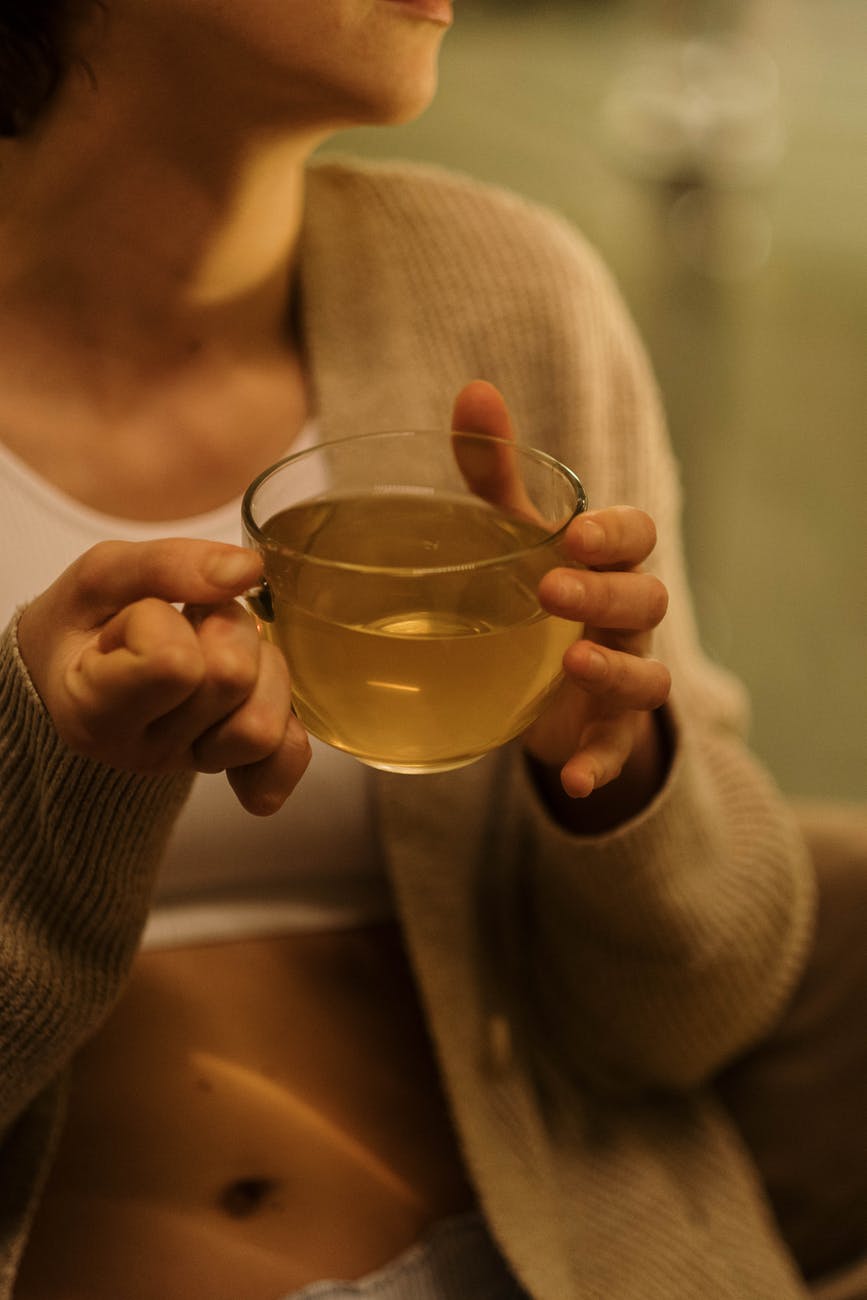
8. Cherry Juice
People have sometimes reported using alcohol to help them sleep, but there may be a healthier drink for the job. Cherry juice is a good source of melatonin, and according to studies, the melatonin in cherry juice may improve sleep.

